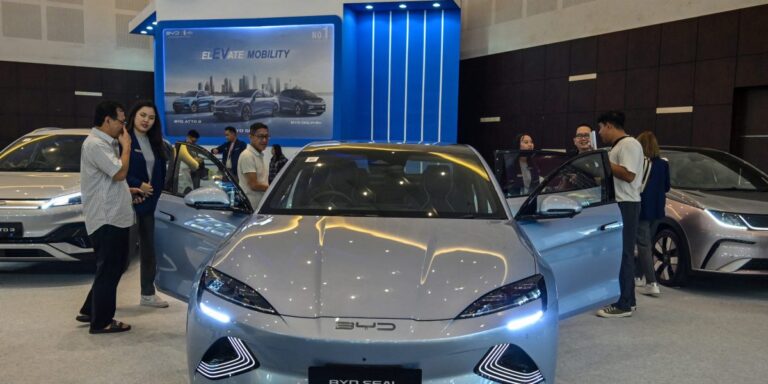In China, premium car sales have plummeted as pressure from a sluggish economy has led consumers to turn to lower-cost electric vehicles.
Luxury brands such as Porsche and Ferrari saw their shipments to China fall sharply in the first quarter, in stark contrast to their performance during the same period last year. Porsche’s first-quarter shipments fell 24% year-over-year, while Ferrari’s shipments to China fell 25%. BMW and Mercedes-Benz sales also fell compared to last year. The Wall Street Journal report.
Chinese luxury car makers’ disappointing first-quarter results were due in part to economic turmoil sparked by a slump in the real estate sector, and economists have criticized China’s recovery efforts for focusing on supporting production and exports rather than consumer demand.
The slowdown in demand is also affecting EVs, though the hit to them has been smaller so far: About 1.03 million EVs were sold in China in the first quarter, marking a slowdown from the continuous growth seen since the second quarter of 2023, according to government figures.
However, while the growth rate was slower than usual, EV sales increased 14.7% year-on-year. Sales of “new energy vehicles,” which include plug-in hybrids, increased 5.7% year-on-year to 1.71 million units in the first quarter. In the U.S., EV sales increased 3% to about 270,000 units during the same period.
EV sales remained strong in May, driven by price cuts by new domestic automakers. Major automakers including Warren Buffett-backed BYD, Nio and Seres Group saw strong growth last month, according to Bloomberg. Seres Group led the way with sales tripling year-over-year. Meanwhile, Nio saw a 234% increase in May, while BYD’s sales rose by just over 25%.
Foreign brands have traditionally dominated auto sales in China, but in recent years, domestic manufacturers have been trying to gain market share one after another. In July, Chinese automakers’ share exceeded 50% of domestic auto sales for the first time. Ten years ago, French automakers such as Citroen, Peugeot and Renault held about 4% of the Chinese market share, but now that share has fallen to less than 1%, Bloomberg reports.
Earlier this year, Tesla CEO Elon Musk praised China’s fast-growing automakers as “the most competitive in the world.”

